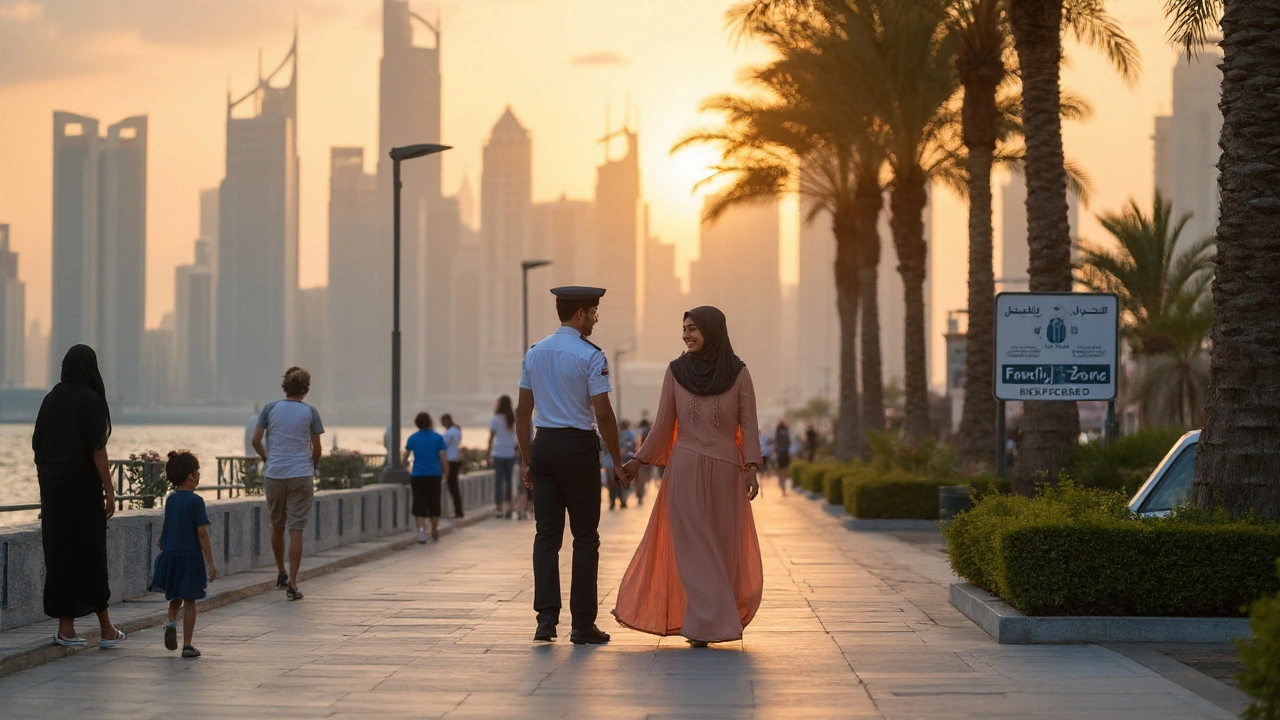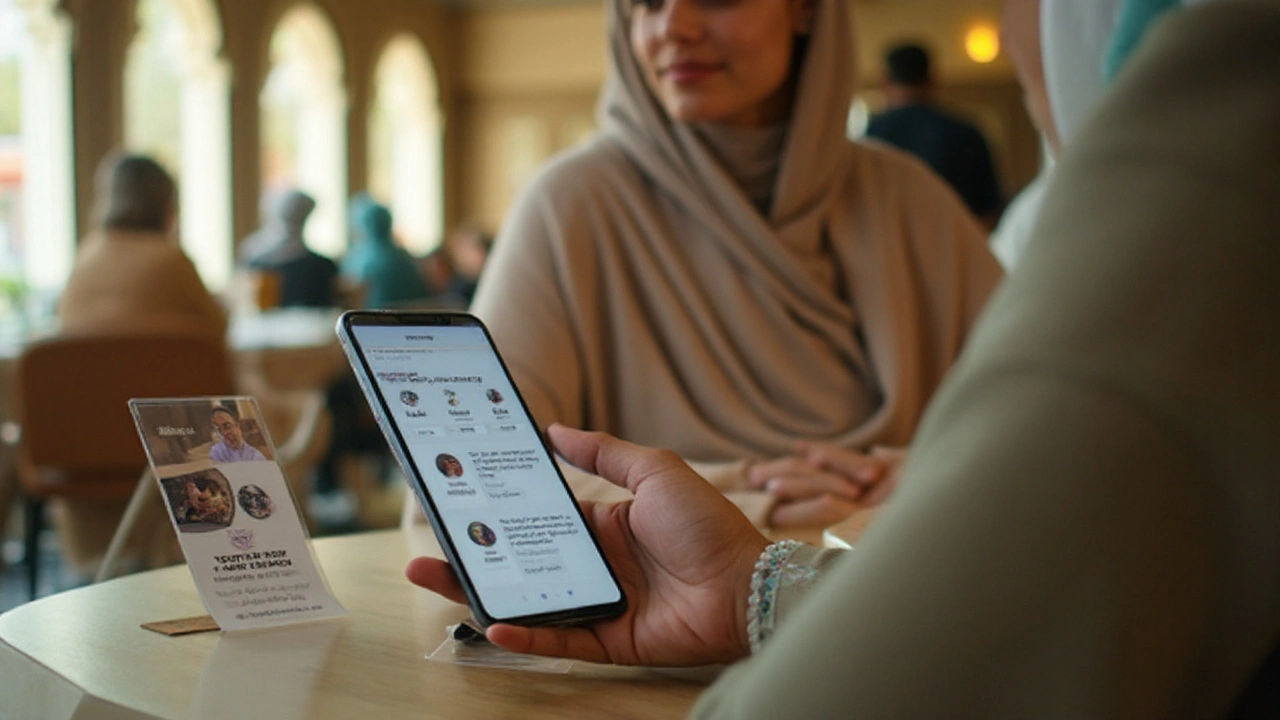
Short answer: what feels casual at home can be a legal headache in Dubai. The city is social and modern on the surface, but the UAE’s laws still treat sex and public behavior conservatively. If you’re thinking about a spontaneous fling, you need a clear picture of what’s actually allowed, what’s risky, and how to avoid trouble. Here’s the no-drama guide to staying safe, lawful, and discreet.
TL;DR: Is Hooking Up Allowed in Dubai?
- Consensual sex outside marriage remains illegal under the UAE Penal Code, even after recent reforms. Prosecutions tend to follow complaints, medical or police involvement, or other issues that bring attention.
- Unmarried couples can share hotel rooms since 2020 reforms decriminalized cohabitation. Hotels usually don’t ask for marriage certificates, but disturbances or suspicion of solicitation can trigger police checks.
- Public displays of affection, indecency, and lewd behavior are punishable. Keep it discreet-especially in public, in cars, and on balconies.
- Dating apps are used, but explicit messages/photos can fall under cybercrime and privacy laws. Don’t send nudes or sexual content.
- LGBTQ+ relationships face added legal risk. Prostitution and solicitation are crimes. Drug laws are strict, and public drunkenness can lead to arrest.
The Law in Plain English: What’s Legal, What’s Risky
Dubai is part of the United Arab Emirates, so federal laws apply. The key framework today is Federal Decree-Law No. 31 of 2021 (the Crimes and Penalties Law), plus later tweaks. The 2020-2021 reforms modernized several areas-like allowing unmarried couples to live together-but they did not turn Dubai into an “anything goes” destination.
What hasn’t changed: consensual sex outside marriage (traditionally called zina) is still illegal under the Penal Code. Practically, cases usually arise when something else happens: a noise complaint, a hospital visit, a dispute between partners, pregnancy, or a police stop related to alcohol or driving. Don’t treat the lack of visible enforcement as permission; assume risk exists unless you’re married to your partner.
What did change: cohabitation by unmarried couples was decriminalized in 2020. That’s why hotels now routinely check in unmarried pairs without fuss. But decriminalized cohabitation is not the same as legalizing sex outside marriage.
Public decency and PDA: Kissing, fondling, or any sexual behavior in public-or where you’re visible to the public-can lead to fines, detention, or deportation. Think beaches, parks, cars, elevators, hallways, and balconies. If someone complains, you’re at risk.
Hotels and private space: Sharing a hotel room is commonplace for unmarried travelers now, but hotels can call the police if there’s disorderly conduct or suspected prostitution. If staff ask you to register a guest, follow the rules-house policy matters.
Cyber and privacy: Federal Decree-Law No. 34 of 2021 (Cybercrime Law) is tough on explicit content, harassment, and privacy violations. Sending nudes, sexually explicit messages, or sharing intimate images-especially without consent-can lead to charges. Police can review phone content during an investigation.
Alcohol and drugs: Licensed venues serve alcohol and adults can drink, but public drunkenness or drinking outside licensed places can still get you in trouble. Drug laws (Federal Decree-Law No. 30 of 2021) are among the strictest globally. Even residual amounts can trigger penalties. Don’t carry anything questionable.
Sex work and solicitation: Illegal. Laws against solicitation, brothel-keeping, and trafficking are enforced (see Federal Law No. 51 of 2006 on anti-trafficking, as amended). Don’t put yourself anywhere near that line.
LGBTQ+: Same-sex relations are illegal under federal law. Public affection, certain clothing choices, or gatherings can draw attention. If you’re LGBTQ+, exercise extreme discretion and review your country’s travel advisories.
Pregnancy and medical care: Reforms eased some paperwork for births outside marriage, but it’s still sensitive. Hospitals follow local rules. If pregnancy is involved, speak to a lawyer early and contact your embassy for guidance.
Bottom line: The letter of the law is conservative. Enforcement is situational, but real. You reduce risk by keeping everything discreet, avoiding public affection, staying off explicit chats, and never mixing any of this with alcohol-related incidents or disputes.

The Safe-Play Guide: Step-by-Step to Avoid Trouble
Here’s a practical playbook if you’re dating, socializing, or navigating a spark in Dubai. It’s about staying respectful, private, and out of the legal spotlight.
- Prioritize privacy over spontaneity. If you met someone and feel a connection, keep it in public social settings-restaurants, bars, lounges-until you both trust each other. If you later spend time in private, choose a setting that doesn’t expose you to the public (no balconies, no parked cars, no beaches at night). Curtains closed. Keep noise low.
- Know the rules of your venue. In hotels, follow guest registration policies. If reception asks to register your guest, just comply. In residential buildings, respect security and neighbors-complaints bring scrutiny.
- Keep it clean digitally. Don’t send explicit messages, photos, or voice notes. Avoid sexting entirely. Delete old explicit content from your phone before travel. Enable device passcodes and auto-lock. If an argument escalates and someone reports your messages, you don’t want your chat logs to be the problem.
- Skip PDA and “steamy” moments outside. Light affection can be too much if someone complains. Save anything intimate for private, non-visible spaces-or skip it. Taxis, rideshares, elevators, and hallways count as public.
- Keep alcohol under control. Drink at licensed venues, stay clear-headed, and don’t carry drinks outside. Public drunkenness draws police attention. If you think you’re too tipsy to keep things low-key, call it a night.
- Never involve money or gifts for intimacy. Paying, offering, or negotiating anything that looks like a transaction is illegal and risky. That includes “gifts,” transfers, or “help with bills.”
- Trust your instincts on consent and safety. If anything feels off-pressure, intoxication, mixed signals-stop. Leave. If you experience assault, go straight to the authorities and your embassy. Seek medical help and legal counsel immediately.
- If police speak to you, stay calm and respectful. Don’t volunteer extra information or speculate. Ask for legal counsel and contact your consulate. Avoid admitting to sexual activity or handing over unlocked devices without understanding your rights and obligations.
Quick decision helper (use this like a mental checklist before you act):
- Is this private, quiet, and not visible to the public? If no, stop.
- Could anyone complain-neighbors, hotel staff, building security? If yes, rethink.
- Is anyone drunk, pressured, or unsure? If yes, stop.
- Is there any exchange that could be seen as payment? If yes, stop.
- Could your messages/photos be a legal problem if someone saw them? If yes, delete and don’t send.
Do/Don’t at a glance:
- Do: keep things discreet, follow hotel rules, use licensed venues, and keep your phone content clean.
- Don’t: show PDA, argue in public, drive after drinking, send nudes, or involve money.
Real-World Scenarios and How They Usually Play Out
None of these are guarantees; they’re common patterns from expat life, traveler reports, and press coverage. The takeaways are practical, not sensational.
Scenario 1: Two tourists meet at a bar and head back to a hotel room quietly. Most nights, nothing happens. Hotels regularly host unmarried couples now. The risk rises if there’s a disturbance, complaints, or a dispute. Keep it calm and private.
Scenario 2: A neighbor complains about noise. Security or police may knock. You could be asked for IDs and guest registration. If staff are satisfied and there’s no hint of illegal behavior, you might just get a warning. If there’s disorder, intoxication, or suspicions (like solicitation), it can escalate fast.
Scenario 3: Public affection after drinks. Kissing near a venue’s entrance or in the back of a taxi can lead to detention if someone complains. Best move: keep affection subtle and indoors in private.
Scenario 4: A late-night dispute that spills into the hallway. Now you’ve got a noise complaint, possible intoxication, and witnesses. This is how minor conflicts become legal problems. De-escalate early, separate, and sleep it off.
Scenario 5: Phone trouble. If a report is filed and police review devices, explicit content or messages can bring cybercrime or decency issues into play. Keep your device free of explicit material throughout your trip.
Scenario 6: Pregnancy discovered during a hospital visit. Sensitive area. Policies have softened, but documentation can be complex without a marriage certificate. Seek legal advice and reach out to your embassy for the current process. Don’t delay.
Scenario 7: LGBTQ+ travelers on a night out. Private gatherings are less risky than public affection. Clubs vary, but the law doesn’t. If approached by security or police, stay polite, comply, and end the night early.
Scenario 8: Someone offers “companionship” for a fee. Walk away. You’re stepping into criminal territory, and stings exist. Even messages proposing payment can be used as evidence.
Key lesson: Trouble often starts with something small-noise, public affection, a phone check-then snowballs. The more invisible and respectful you are, the safer you’ll be.

Quick Checklists and a Mini‑FAQ for Fast Answers
Pre-trip checklist:
- Clear your phone of explicit photos, videos, and chats.
- Turn on strong passcodes and automatic screen lock.
- Read house rules for your hotel or Airbnb-style stay; ask about guest policy.
- Install your embassy’s contact info and a reputable local legal contact (saved by name, not as “lawyer”).
- Review your country’s UAE travel advisories for the latest legal updates.
On the night checklist:
- Choose licensed venues for drinks; keep consumption moderate.
- Avoid PDA; use a private car or walk directly inside without lingering.
- Keep noise down. Don’t argue in public spaces.
- Register guests if required by the property. Comply without debate.
- Keep all messaging polite and non-explicit.
Mini‑FAQ
Is sex outside marriage legal now?
No. Even after the 2020-2021 reforms, consensual sex outside marriage remains an offense under the federal Penal Code (Federal Decree-Law No. 31 of 2021). Cases often hinge on complaints or related incidents, but the risk is real.
Can unmarried couples share a hotel room?
Yes. Cohabitation for unmarried couples was decriminalized in 2020, and hotels generally allow it. Follow hotel policies and keep things discreet.
Is kissing in public illegal?
Public indecency laws are strict. Affection that might pass unnoticed elsewhere can lead to penalties if someone complains. Best to avoid PDA.
Are dating apps safe to use?
People use them, but explicit content can fall under cybercrime rules. Never send nudes or graphic messages. Keep conversations polite and practical.
Can I invite someone to my apartment or hotel?
This is where the risk lives. Keep it quiet, private, and compliant with building/hotel rules. Any complaint, noise, or dispute raises your risk profile.
What about LGBTQ+ dating?
Higher legal risk. Discretion is essential. Avoid PDA, keep gatherings small and private, and check your country’s latest guidance for LGBTQ+ travelers.
What should I do if police get involved?
Stay calm and respectful. Don’t speculate or volunteer extra details. Ask to contact your consulate and a lawyer. Avoid unlocking devices or making statements until you understand your situation.
What if I’m sexually assaulted?
Report it promptly to the authorities and your embassy, seek medical care, and request legal support. Preserve evidence and avoid washing or deleting messages until advised by professionals.
Are condoms or sexual wellness products legal?
Yes, they’re sold in pharmacies and supermarkets. Carrying them isn’t a crime. Their presence won’t protect you from decency or cybercrime violations, so keep everything discreet.
Do hotels ask for marriage certificates?
Not typically since 2020. Some properties may register all guests for security. That’s normal-comply and move on.
Can texts or DMs be used against me?
Potentially, yes. Under the Cybercrime Law, explicit content, harassment, or privacy violations can be charged. Keep your phone clean.
What sources back this?
UAE Federal Decree-Law No. 31 of 2021 (Crimes and Penalties), Federal Decree-Law No. 34 of 2021 (Cybercrime), Federal Decree-Law No. 30 of 2021 (Narcotics), and official UAE Government Portal updates. Dubai Police public guidance and your home country’s travel advisories provide practical context.
Next steps / Troubleshooting by persona
Solo traveler who met someone: If you’re unsure about privacy or house rules, end the night early. Trade numbers, meet again at a quieter venue, and decide later. Don’t force a “now or never” moment.
Couple traveling together (unmarried): Book reputable hotels, stay low-key, and skip PDA. If staff ask to add a guest to the booking, just say yes. No balcony intimacy.
LGBTQ+ traveler: Keep dating app bios minimal, message discreetly, and favor private, trusted spaces. If you sense discomfort from staff or patrons, exit smoothly.
If a dispute starts: De-escalate, take separate spaces, and cool down. The goal is to avoid neighbors or staff calling security. Sleep, reassess in the morning.
If police contact you: Be polite, ask for legal counsel, and contact your embassy. Don’t discuss sexual activity; don’t unlock devices unless required and you’ve had legal advice.
If health or pregnancy is involved: Seek medical help and legal advice early. Embassies can outline the current process for documentation and support services.
If you remember one thing, make it this: keep things private, calm, and compliant. In a city where luxury is public and intimacy must be private, discretion is your best friend. If you choose to pursue hooking up in Dubai, do it with clear eyes about the law-and a plan to stay out of the spotlight.
Dubai Escort